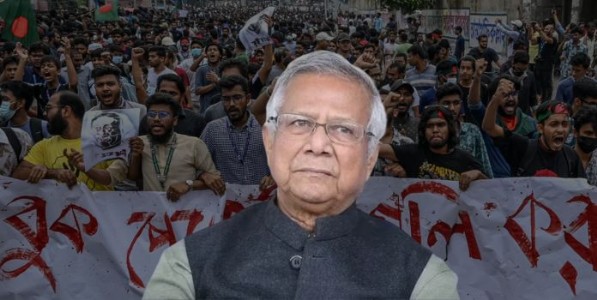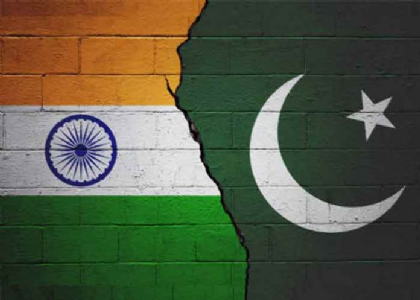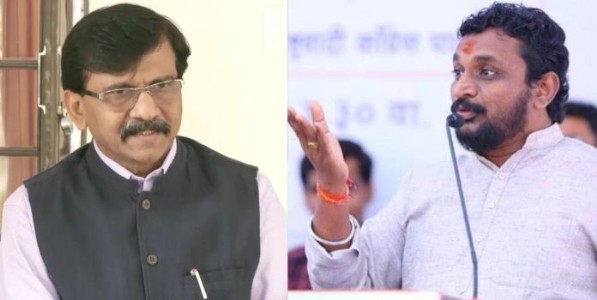Thunchaththu Ramanujan Ezhuthachan : The Father of Modern Malayalam literature
Total Views | 1020
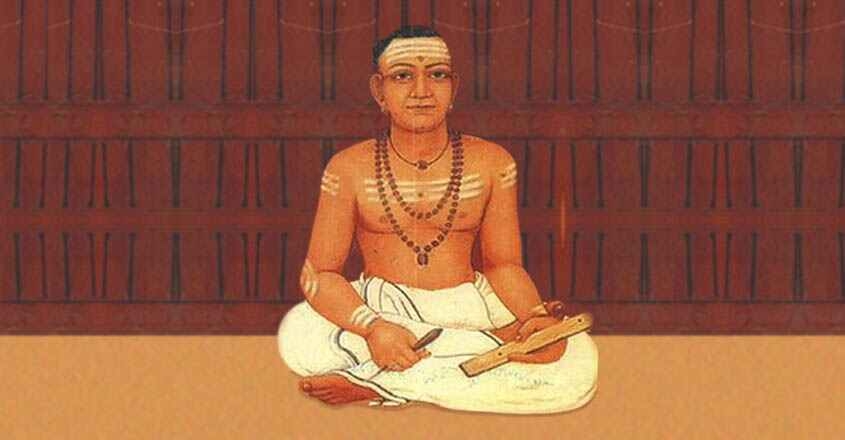
Thunchaththu Ramanujan Ezhuthachan refined the Malyalam language style and wrote his works for ordinary people, incorporating whatever is good with a strong sense of righteousness and worship. His contribution to the Malayalam language through the 'Adhyathma Ramayanam' (a translation of the Ramayana) and 'Mahabharatham' (a translation of the Mahabharata) is unparalleled and his contribution in the cultural level is immense.
Thunchaththu Ramanujan Ezhuthachan was a Malayalam devotional Poet, translator and linguist from Kerala, South India. He has been called the, ‘Father of Modern Malayalam’ or alternatively, the ‘Father of Modern Malayalam literature’ or ‘The Primal poet in Malayalam.’ His main works generally are based on Sanskrit compositions. Linguists are unanimous in assigning ‘Adhyatma Ramayanam’ and ‘Sri Mahabharatam’ to Ezhuthachan.
The Ramayanam, the most popular work depicts the hero, Rama, an ideal figure. Ezhuthachan introduced a movement of domesticised religious textuality in Kerala. He was a significant voice of the Bhakti Movement in South India. The shift of literary production in Kerala to a largely Sanskritic, Puranic religiosity is attributed to this movement. Ezhuthachan's school promoted popular and non-Brahman (Bhakti) literary production. His Works were also a general opposition against the moral decadence of the 16th century Kerala Society.
Thunchaththu Ramanujan Ezhuthachan is to the Malayalis in Southern India, what Tulsidas is to the Hindi speaking people of the North - the supreme poet and religious teacher. In his works we can see the poetic wonder that changes language with expression. His aim was not just to impart poetry, he was to inspire devotional and enlightenment meetings.
His works include 'Adhyatma Ramayanam kilippattu', 'Bharatham kilippattu,' ‘Bhagavatham Kilippattu', 'Uthara Ramayanam', 'Chintaratnam', 'Devi Mahatmyam', 'Kaivallya Navaneetham' and 'Harinama keerthanam'. It is believed that, Ezhuthachan spent the last days of his life with his disciples at Ramanandha Agraharam in Palakkad.
There is no doubt about Thunchaththu Ramanujan Ezhuthachan's contribution to the literary level of the common man of medieval Kerala. Ezhuthachan taught his pupils to respect and worship the Malayalam language and the Arya-ezhuttu alphabet.
He refined the Malyalam language style and wrote his works for ordinary people, incorporating whatever is good with a strong sense of righteousness and worship. His contribution to the Malayalam language through the 'Adhyathma Ramayanam' (a translation of the Ramayana) and 'Mahabharatham' (a translation of the Mahabharata) is unparalleled and his contribution in the cultural level is immense.
Ezhuthachan through his compositions has not only created an awareness of spiritualism, but also a salient social change. In those days Brahmins were alone competent to learn Vedas. Non-Brahmins were denied higher learning especially Vedas and Shastras.
Untouchability and social segregation were the evils in those days. The present Malappuram district where Ezhuthachan was born was part of the Kingdom of the Zamorin of Calicut.
The Brahmin priests directed and instructed the rulers what to do and what not to do. The basic rights of a large number of non-Brahmins were denied. It was very often quoted that a learned Sudra should be despaired and kept at a distance.
‘Sudhramakshara SamyukthamDuratha Parivanjayeth.’
Ezhuthachan through his composition and through the authoritative interpretation of Vedic and Puranic texts challenged this System and spread the idea that the, caste is not a logical reality.
Ezhuthachan like the traditional teachers and gurus of India such as Valmiki, Vedavyasa, Kambar and Shankara is not only a poet, but an accepted teacher of the society who strived for social justice through value oriented non-formal spiritual education.
People from around Kerala come to take sand from the Thunjan Parambu to use in the initiation of their children to the alphabet. Every year, hundreds of people bring their children to Thunchan Parambu to write their first letters during the Vijayadashami months. Children are initiated to the world of letters by masters, teachers or parents by holding their fingers and writing the letters in a plate filled with rice. The letters will also be written in their tongues with a golden ring.
Various reasons are advanced to justify the method of Ezhuthachan in which parrot is an inevitable factor. One such is that he is thereby forestalling the blessings of Saraswathy to whom he makes an indirect appeal through the parrot which adorns the lap of the goddess of learning.
Another story is about the famous suka Maharishim the mythical boy, saint and the author of the Bhaga-Vatam, is propitiated thereby as his name also begins with Shuka (Parrot). There is still another based on the sweet voice of the parrot which is supposed to import the sweetness to the literary work which it is called upon to commence.
'Adhyathma Ramayanam Kilippattu' is the most popular Malayalam version of the Sanskrit epic Ramayana. It is believed to have been written by a Ezhuthachan in the early 17th century and is considered to be a classic of Malayalam literature and an important text in the history of Malayalam language. It is a retelling of the Sanskrit work 'Adhyatma Ramayana' in 'Kilippattu' (bird song) format.
Ezhuthachan used the Grantha based Malayalam Script to write his Ramayana, although Vatteluttu writing system was the traditional writing System of Kerala then. Recitation of 'Adhyathma Ramayanam Kilippattu' is very important in Hindu families in Kerala. The Malayalam month of 'Karkidakam' is celebrated as the 'Ramayana recitation month' and Ramayana is recited in Hindu houses and temples across Kerala.
In the matter of 'Devibhagavatam', there are Only 13 chapters in all books of the original work, even though 18 chapters were claimed to be present. Ezhuthachan also had written only 13 of them and its manner indicates that it was written in Thunjan's early years.
The parrot song genre, pioneered by Ezhuthachan, inaugurated the production of many similar works in Malayalam. The highest literary honour awarded by the Government of Kerala is known as the 'Ezhuthachan Puraskararm.' The Malayalam University, established by Kerala government in 2012, is named after Ezhuthachan. The sand from the compound where the house of Ezhuthachan once stood is considered as sacred.
The decorations of ‘Thunchath Gurupada’ and ‘Thunchattacharya’ are not exaggerated. In the minds of the Malayalam soil, he is at the same time a literary teacher and a spiritual guru.
- - P. S. Sreedharan Pillai
(The writer is Hon'ble Governor of Mizoram.)

अग्रलेख




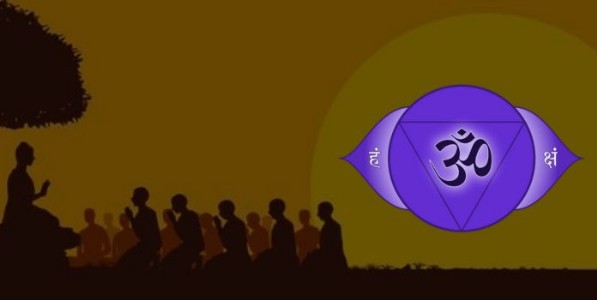

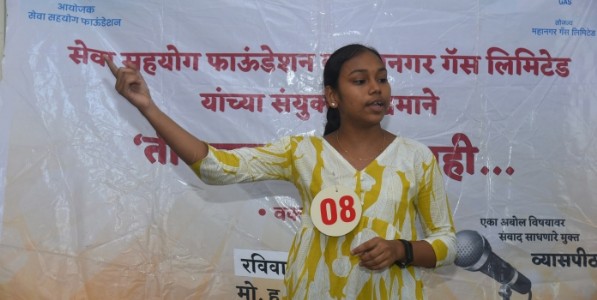
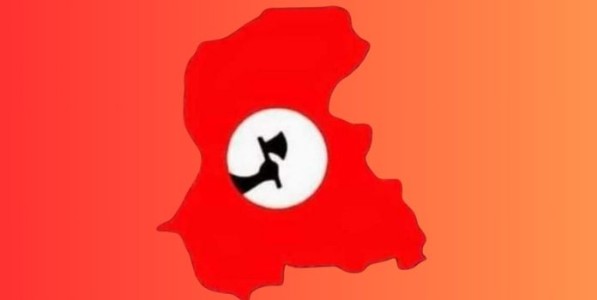
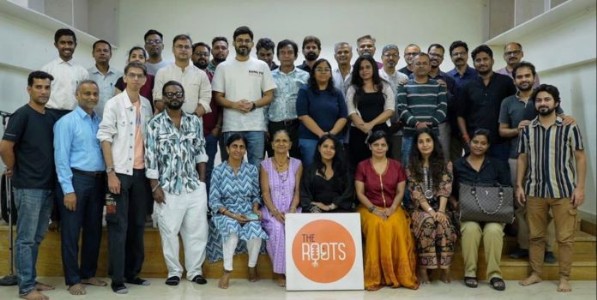

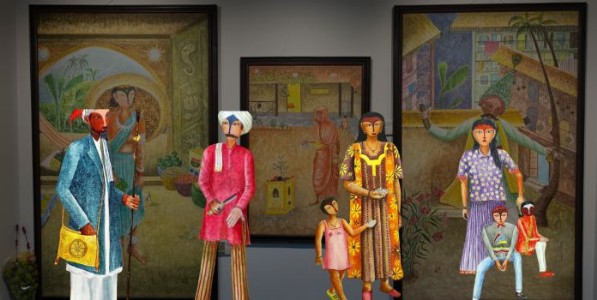



_202505282229553101.jpg)

